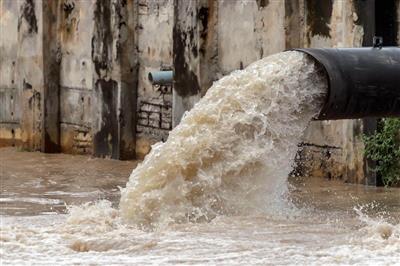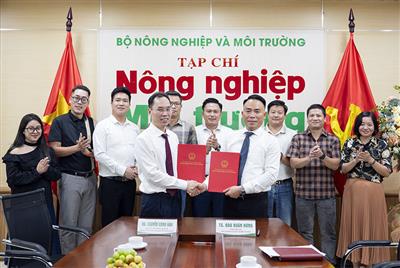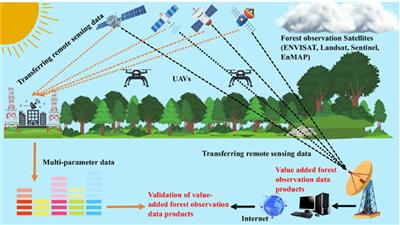
Key policies effective from August 1, 2024
08/08/2024TN&MTAs of August 1, 2024, a series of economic-related policies, including the Land Law, the Housing Law, the Real Estate Business Law, the Law on Credit Institutions, and various decrees, have officially come into effect. These policies are now in force as of August 7, 2024.

Deputy Minister Le Minh Ngan conveyed the fundamental contents of the 2024 Land Law
Comprehensive legal system
The Land Law, Housing Law, Real Estate Business Law, and Law on Credit Institutions all came into effect on August 1, 2024. On June 29, 2024, the National Assembly passed laws amending and supplementing certain articles of the Land Law No. 31/2024/QH15, the Housing Law No. 27/2023/QH15, the Real Estate Business Law No. 29/2023/QH15, and the Law on Credit Institutions No. 32/2024/QH15.
The law, consisting of five articles and to be effective from August 1, 2024, is amended and supplemented in certain articles of the Land Law No. 31/2024/QH15 as follows: "Abolish Resolution No. 132/2020/QH14 dated November 17, 2020, of the National Assembly, which piloted certain policies to resolve issues in the management and use of defense and security land combined with production activities, and economic development from January 1, 2025."
The amendment to Article 252, Clause 1, states: "This law takes effect from August 1, 2024, except as provided in Clauses 2 and 3 of this Article."
Additionally, Clause 10, Article 255, is amended as follows: "Investment projects involving the allocation or lease of land without auctioning the land use rights, as stipulated in Land Law No. 45/2013/QH13, relevant legislation, and consistent with land use planning, which have not yet been allocated or leased land, may proceed with subsequent steps in the process of land allocation or lease to allocate or lease land to investors, project owners under this law if they meet one of the following criteria:
a) The project has selected an investor or project owner in accordance with the law on investment, housing, and bidding from July 1, 2014, to before August 1, 2024.
b) The project has had valid investor or project owner selection documents submitted before August 1, 2024, and the selection has been completed before January 1, 2025.
The selection of investors or project owners for the projects specified in this point shall be carried out in accordance with the laws on investment, housing, and bidding effective at the time of submission."
Furthermore, the law has amended and supplemented Clause 1 of Article 197 of the Housing Law No. 27/2023/QH15; Clause 1 of Article 82 of the Real Estate Business Law No. 29/2023/QH15; and Clause 2 of Article 209 of the Law on Credit Institutions No. 32/2024/QH15, all of which became effective on August 1, 2024.
The National Assembly voted to approve the laws amending and supplementing certain articles of the Land Law No. 31/2024/QH15, the Housing Law No. 27/2023/QH15, the Real Estate Business Law No. 29/2023/QH15, and the Law on Credit Institutions No. 32/2024/QH15.
Decree detailing the implementation of the Land Law
The government issued Decree No. 102/2024/ND-CP, detailing the implementation of certain articles of the Land Law. The decree took effect on August 1, 2024.
This decree provides specific details and guidance on implementing Clause 6, Article 3; Article 9; Clause 2, Article 10; Article 16; Clause 4, Article 22; Point d, Clause 1, Article 28; Clause 3, Article 28; Clause 6, Article 49; Article 65; Clause 2, Article 74; Clause 9, Article 76; Clause 10, Article 76; Article 81; Article 82; Article 84; Article 87; Article 88; Point b, Clause 5, Article 89; Clause 7, Article 89; Article 90; Article 113; Clause 3, Article 115; Clause 6, Article 116; Clause 7, Article 116; Clause 1, Article 122; Point n, Clause 3, Article 124; Clause 8, Article 124; Article 125; Article 126; Article 127; Article 172; Article 181; Article 190; Article 192; Article 193; Article 194; Article 197; Article 200; Article 201; Article 202; Article 203; Article 204; Article 208; Article 210; Article 216; Article 218; Article 219; Article 223; Clause 8, Article 234; Clause 7, Article 236; Clause 2, Article 240; Point c, Clause 2, Article 243; Point b, Clause 2, Article 257 of the Land Law.

Land support regulations for ethnic minorities:
The decree specifies that land support for individuals from ethnic minority groups, as stipulated in Clause 3, Article 16 of the Land Law, is as follows:
1 - For individuals without residential land, they are allocated residential land or permitted to convert other land types to residential land. Land users are exempt from land use fees for the area within the provincial People's Committee's prescribed limit.
For those lacking residential land within the prescribed limit, they may convert other land types to residential land and be exempt from land use fees within the residential land allocation limit.
2 - For individuals without agricultural land or with agricultural land below 50% of the local allocation limit, they are allocated additional agricultural land within the limit.
The decree outlines the responsibilities of the commune and district People's Committees in supporting land for ethnic minorities. Specifically, the commune People's Committee must review and list cases under Clause 7, Article 16 of the Land Law and report to the district People's Committee by October 15 annually.
The district People's Committee is responsible for surveying, determining land area, and reclaiming land in cases under Clause 7, Article 16 of the Land Law, including those violating land policies related to ethnic minorities and cases where land was allocated or leased by the state under Clause 3, Article 16 of the Land Law but is no longer needed.
The district People's Committee must develop a land support plan for individuals from ethnic minority groups based on the land fund under Clause 4, Article 16 of the Land Law. The plan must specify the cases eligible for support, the support area, and the form of land support.
The district People's Committee submits the plan to the provincial People's Committee for approval, specifying the area for land allocation or lease to implement land support policies for individuals from ethnic minority groups, considering local conditions and the land fund under Clause 5, Article 16 of the Land Law.
Funding specified in Clause 8, Article 16 of the Land Law is allocated from local budgets and other lawful sources as per regulations. If the local budget cannot cover the costs, the provincial People's Committee reports to the Ministry of Finance to request the Prime Minister's consideration and decision.
Land reclamation procedures for violations of Land Law
According to the decree, the reclamation of land from users who fail to fulfill financial obligations to the state is conducted as follows:
Land users who fail to fulfill financial obligations to the state, as stipulated in Clause 6, Article 81 of the Land Law, are cases where the user has not fully or partially paid land use or lease fees. If compelled by competent state authorities under tax management regulations but still non-compliant, the tax authority may request land reclamation.
The tax authority is responsible for sending notices, along with relevant documents, to the land management authority for processing and submitting to the competent authority for land reclamation. The reclamation process follows the regulations below.
Conditions for land reclamation for violations of Land Law as stipulated in Article 81 of the Land Law
According to the decree, if the violation requires administrative penalties, within 30 days of receiving the competent authority's administrative penalty decision proposing land reclamation, the land management authority must submit a report to the competent state agency for reclamation under Article 83 of the Land Law.
For violations not requiring administrative penalties, land reclamation is carried out after a competent inspection or audit agency concludes that reclamation is necessary.
Upon receiving the competent authority's documents, the land management authority must prepare a reclamation dossier and submit it to the competent People's Committee within 30 days.
The dossier includes: 1. A report on the land reclamation; 2. A draft Decision on Land Reclamation according to Form No. 01d in the appendix of this decree; 3. Relevant documents from the competent state agency.
Within ten days of receiving the dossier, the competent People's Committee must notify the land user, property owner attached to the land, and other related parties (if any) of the land reclamation decision. The affected parties must comply with the land reclamation decision and hand over the land and land use documents to the designated authority as specified in the reclamation decision within the time frame specified, but no more than 45 days, unless otherwise specified (*) below.
Within 15 days from the end of the land reclamation notification period, the competent People's Committee is responsible for issuing the land reclamation decision and directing the organization of its implementation. If the land user does not comply, enforcement measures will be taken to implement the land reclamation decision.
The individual whose land is being reclaimed is responsible for complying with the land reclamation decision and must hand over the land and relevant land use documents to the authority or individual specified in the land reclamation decision.
Responsibilities of competent authorities
• Notify land users of land reclamation and post the information on the provincial and district People's Committees' portals or websites.
• Direct the handling of the remaining value of investments in the land or assets attached to the land (if any) according to legal regulations.
• Direct the district-level People's Committee to enforce the land reclamation decision as prescribed in Article 39 of this Decree.
• Allocate funds for the enforcement of land reclamation.
Handling of assets on land and remaining value of reclaimed land
The Decree specifies that in cases of land reclamation under Clause 6, Article 81 of the Land Law, the proceeds from the auction of land use rights and assets attached to the land (if any), after deducting the costs of enforcement and auction organization, will be remitted to the state budget to settle the financial obligations of the land user. The remaining amount will be returned to the land user or the owner of the assets attached to the reclaimed land.
In cases of land reclamation under Clause 7, Article 81 of the Land Law, within 12 months from the date of the land reclamation decision, the owner of the assets attached to the reclaimed land has the right to sell the assets according to legal regulations. If the land user fails to sell the assets attached to the land within the specified time, the State will not compensate for the assets. The owner must dismantle the assets and return the land to the State within the timeframe specified in the land reclamation decision. If the owner fails to comply, the competent state authority will enforce the land reclamation.
If an investor purchases the assets attached to the reclaimed land from the land user, the State will allocate or lease the land to the investor according to legal regulations.
Compared to the 2013 Land Law, the 2024 Land Law introduces many new provisions, helping to resolve existing issues and difficulties related to current land policies, such as policies for ethnic minorities and specific regulations for land reclamation for economic and social development in the national and public interest, in line with the spirit of Central Resolution No. 18.
Ngoc Huyen (NRE Magazine)


















